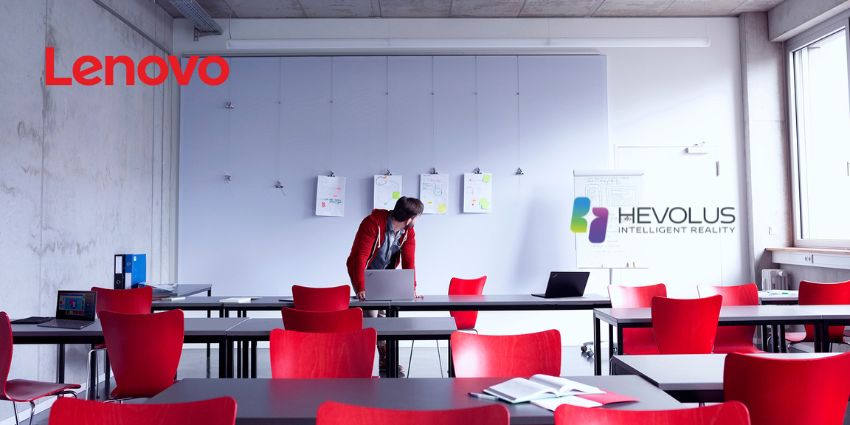Artificial intelligence is harnessing the full potential of extended reality (XR), transforming immersive technologies from niche experiments into scalable solutions for businesses and educators across Europe.
Lenovo and Italian XR provider Hevolus Innovation are at the forefront of this change, working together to make XR more accessible, natural, and impactful.
Through their partnership, the two are driving the adoption of AI-powered immersive learning and business environments across Europe, combining XR hardware provided by Lenovo with advanced AI and holographic technologies from Hevolus to redefine how people learn, collaborate and engage.
Together, Lenovo and Hevolus deliver one of Europe’s first fully integrated AI + XR human experience platforms, enabling immersive training, corporate training and interactive retail spaces that make digital transformation a reality.
“From immersive learning in schools to interactive product visualization in the showroom, our partnership enables organizations to achieve scalable, secure, high-performance solutions that blend artificial intelligence, spatial computing, and cloud-based XR applications to deliver significant value to their businesses.” Julien Levy, Product and Partner Manager, Lenovo EMEA.
remove barriers
One of the biggest barriers to XR adoption has been the complexity of content creation. Building educational simulations or immersive classrooms required advanced 3D modeling techniques and expensive tools.
That barrier is quickly disappearing.
“Previously, building XR scenarios required knowledge of 3D modeling. Today, with AI, a teacher or trainer can create an entire environment in minutes by simply describing what they want,” Levy explained.
Now, with Generative AI, you can instantly create immersive experiences by turning 2D photos into 3D objects or text prompts. This represents a fundamental change. XR is no longer limited to professional developers. Educators, businesses, and even small teams can now create engaging, immersive experiences with little to no technical expertise.
Antonio Squeo, Hebolus CEOcalled this a ‘turning point’. “The challenge has always been satisfaction, but when a company or school can instantly transform a photo or message into a 3D object, everything changes. AI makes XR development faster, easier, and more comprehensive.”
Making XR more natural
Beyond simplifying development, AI is changing the way people interact with XR itself. Traditional XR systems often require controllers, calibration, or lengthy setup processes, which are barriers to repeat use.
AI reduces this friction by enabling conversational interactions. Instead of navigating menus or complex controls, users simply describe what they want to see and the system creates it. Whether visualizing products in retail or summoning new objects in training, XR is intuitive, immediate, and much more engaging.
leading education
Education was one of the earliest beneficiaries of this evolution. Universities across Europe are deploying thousands of Meta Quest devices to support new teaching models.
AI-powered avatars allow students to practice public speaking, negotiation, and other soft skills in realistic scenarios. In a history class, learners can interact with digital representations of figures like Cleopatra or Einstein, with avatars responding through curated data sets. These experiences make classes more interesting while helping students retain knowledge more effectively.
Accessibility was critical to adoption. While the most immersive experiences are delivered through headsets, XR classes can also be run on tablets and smartphones, ensuring institutions are not limited by hardware availability. This multi-device approach is expanding engagement and accelerating uptake across schools and colleges.
Empowering people, not replacing them
For Lenovo and Hevolus, the role of AI in XR is clear. That means empowering people. Squeo noted that AI acts as an amplifier, accelerating development and making immersive experiences more inclusive.
Levy echoed the same point:
“AI exists to enhance human potential. In XR, it enables faster creation, more natural interactions and better outcomes for students and businesses across Europe.”
Technology is accelerating and becoming more accessible as AI breaks down barriers, simplifies access, and makes XR more attractive.
In classrooms and workplaces across Europe, the future of XR is already taking shape.

